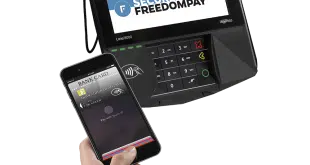As President Obama signs the Dodd-Frank Wall Street Reform Act of 2010 into law on Wednesday, at least one major merchant interest group has already fired the opening shot in what promises to be an all-out battle over the fees banks earn on debit card transactions. At the center of that fight are the Federal Reserve Board and a little-noted provision in the new law that has the potential to erase the bulk of the estimated $15 billion debit cards generate in interchange revenue.
Some major banks are already expecting huge cuts in interchange because of Dodd-Frank. Bank of America Corp., for example, recently calculated a potential hit of between 62% and 79% (Digital Transactions News, July 19). “I’ve been saying 75% of debit card interchange is in jeopardy,” says Steve Mott, principal at Better Buy Design, a payments consultancy in Stamford, Conn. But that could be a conservative estimate, he notes, depending on how back-room maneuvering plays out over the next nine months as the Fed works out the practical outlines of the regulatory authority it now has over interchange. Both the banks and the card networks, on the one hand, and merchant groups on the other, are expected to lobby the banking regulator furiously over this time, the period prescribed in the law for the Fed to produce a regulatory framework.
What is especially worrisome for banks is a provision in Section 1075 of the new law that asserts that debit cards and checks have a “functional similarity,” and that the Fed should consider that checks clear “at par,” or in other words with zero interchange. This seven-page section, introduced as an amendment by Sen. Richard Durbin, D-Ill., amends the Electronic Funds Transfer Act to set new rules for debit card pricing and acceptance and was the subject of fierce lobbying by both banks and merchants up until the bill’s final passage by the Senate last week. The House of Representatives had okayed the bill in June.
While less well-known than language in the same section that says the Fed should set interchange fees at levels that are “reasonable and proportional,” the “at-par” language has been part of the Durbin Amendment all along, and now merchant advocates are promising to push for it to control how the Fed approaches debit card interchange. “Section 1075 is clear on its face, and we shouldn’t have to bring it to the attention of the Fed,” says Mallory Duncan, general counsel at the National Retail Federation, the world’s largest merchant trade group and a long-time campaigner for interchange controls. “Nevertheless, we will point it out.” The result, he says, is that what merchants collect on debit card transactions “ultimately should end up close to face value.”
Mott says this could well mean “sub-cent” fees. Indeed, he warns that the pricing pendulum could swing so far that banks could find themselves liable for so-called reverse interchange, or payments by banks to merchants on each transaction. The idea behind this, Mott says, is that banks save money on debit card transactions compared with cash and checks. “Don’t be surprised to see arguments for reverse interchange start to surface,” he says. “The tea leaves are continuing to shift in favor of the merchants.” For now, the NRF stops short of advocating reverse interchange. There is precedent for such pricing. In the early days of electronic funds transfer networks, banks in some cases paid interchange to merchants to encourage them to accept PIN debit cards a the point of sale.
Section 1075 of Dodd-Frank exempts from interchange regulation debit cards issued by banks with less than $10 million in assets as well as government benefit cards and reloadable prepaid cards.




